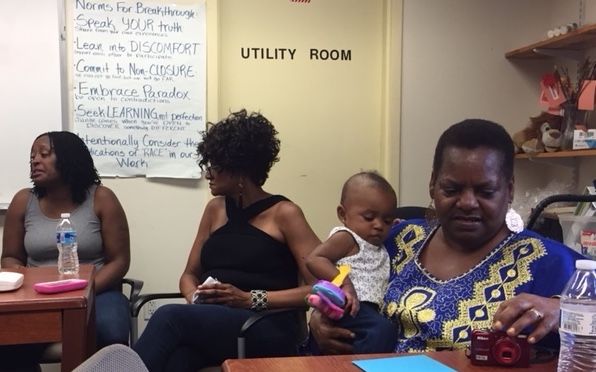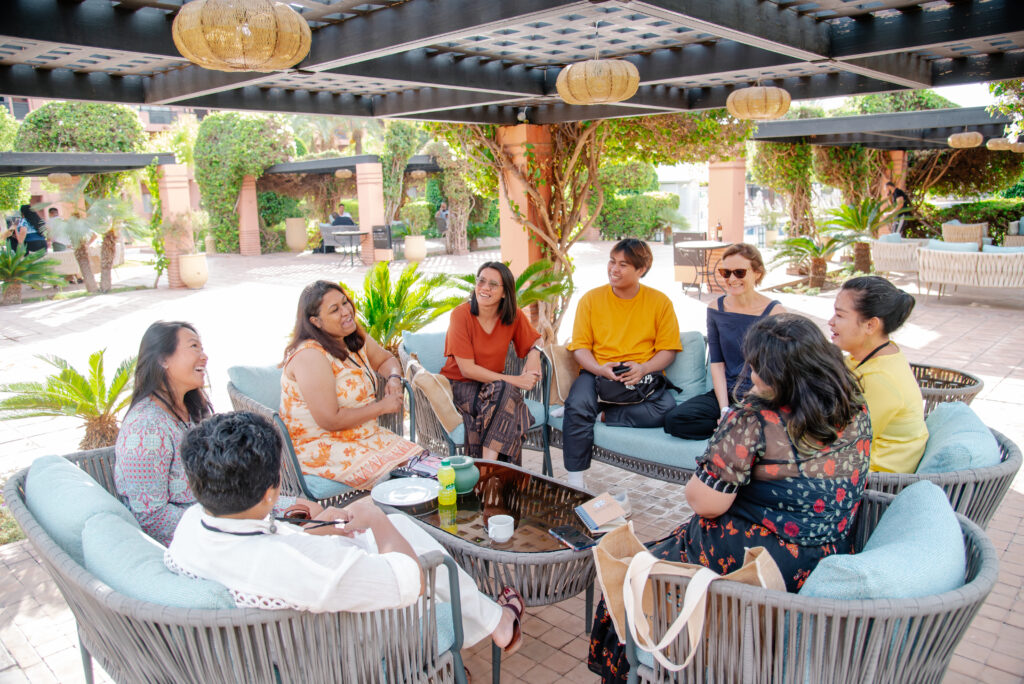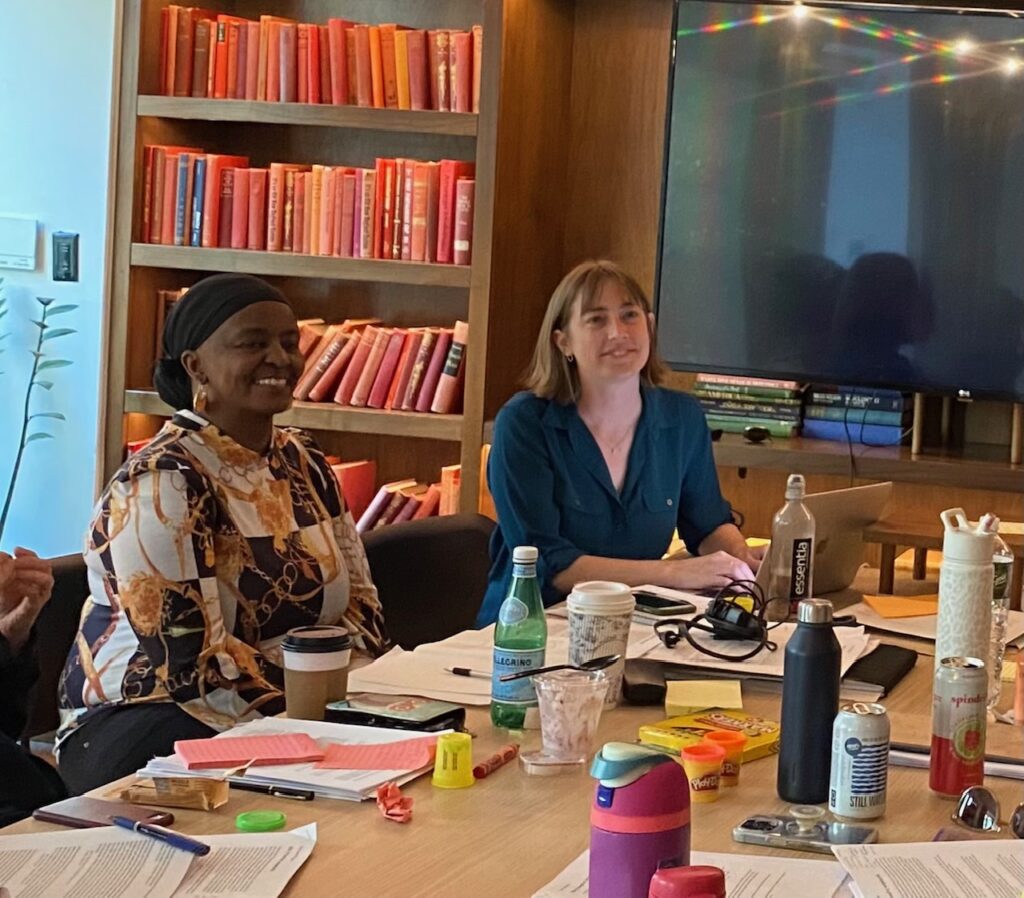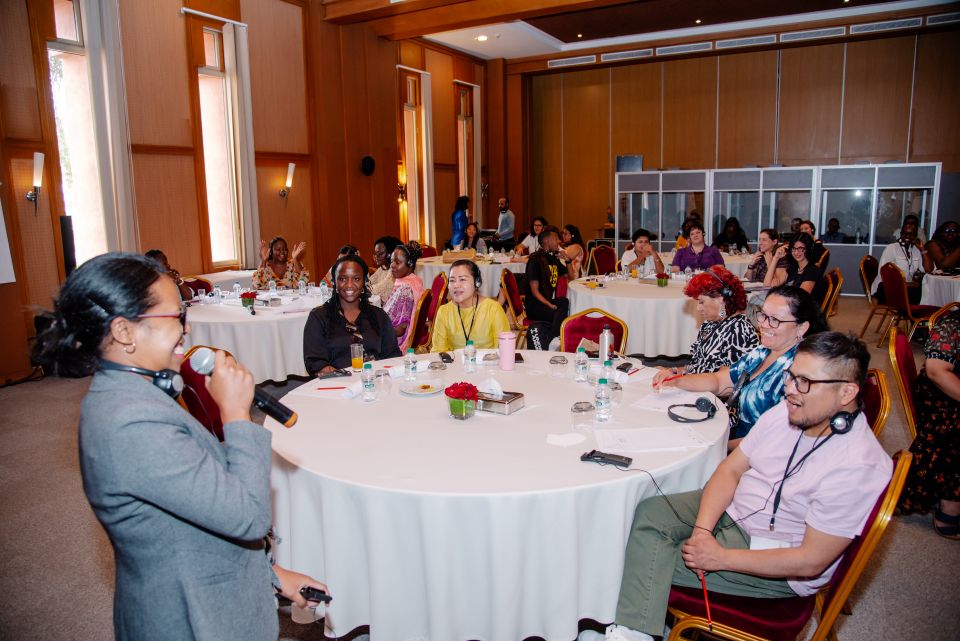Poverty Everywhere, Poverty Here

If you think it’s hard to get out of poverty as a woman in urban Kenya or India, just try doing so in cities in the United States.
In India, you can see yourself “graduate” out of extreme poverty, as the women with whom WomenStrong International works in Madurai regularly attest. Within a couple of months of participation in one of our program’s savings groups, you can save enough to purchase low-cost life and health insurance, obtain job training, and secure critical documents needed for various government benefits, and in a short period of time you can improve your home and see your son go on to engineering school.
In the slums of Kisumu, Kenya, the women with whom we work also save, enabling them to create or diversify their small businesses, hire an employee, open a bank account to which they make mobile deposits, and create urban gardens that allow them to improve their children’s nutrition at low cost.
In the States, saving your way out of poverty is all but impossible. Women in savings groups here can barely squirrel away enough to cover more than the rare treat for their children. You can’t get ahead selling produce or plastic goods, like the market women with whom we work in Kenya and Ghana, who are able to pay their children’s school fees, upgrade their wares or businesses, even hire an employee or two; here, a New York City street vendor can barely cover the costs of her cart, goods, licenses, and transport, much less her family’s most fundamental needs. And earning minimum wage flipping burgers in a fast food joint gets her no closer to meeting those needs.
Regardless, people continue to scramble here to survive and to strive toward realizing some version of the American dream. But our economic and political structures are stacked high against such success.
Let’s start with the basics. With the lifesaving exceptions of Medicaid, Medicare, and Obamacare (where it still works), health insurance is almost completely beyond the reach of low-income Americans, leaving many, when felled by a catastrophic accident or health shock, bankrupt or even out on the street. Housing is equally challenging: with the skyrocketing real estate market exacerbating the collapse in supply of affordable housing, most big cities’ housing lists have years-long backlogs, with many cities’ lists closed until those backlogs have cleared. Those lucky enough to secure public housing must suffer the indignities of living under dangerous physical conditions while periodically justifying to government their right to that housing by proving that they are earning or training to earn, while making sure not to earn so much that they are no longer eligible.
A mother also can’t earn so much that she risks losing other benefits she may receive, such as food stamps, Temporary Assistance to Needy Families or Children’s Health Insurance Program subsidies, Medicaid or heating assistance, all of which are jeopardized when she gets that hardwon raise and her paycheck suddenly exceeds the limit. Most existing job training programs, moreover, which also qualify her for these benefits, do not connect to available jobs, making the entire requirement ill-conceived, costly, and demoralizing.
And then there’s racism.
Of course some combination of tribe and caste, color, gender, and religion serves as the basis for entrenched discrimination in other countries where WomenStrong works, and elsewhere around the globe; but America is supposed to be the land of opportunity: you work hard here, our immigrant forebears were told, and you can get ahead.
Certainly this has been true, for some. But those handicapped by poverty and racism start from far behind, without the same shot at success. One needs healthful housing, where the heat works, the water is clean, and a child can get to school and home without risking her life. That school needs to be a safe, decent, and nurturing place, with educators who care enough to bolster your sense of self while teaching you enough subject matter and critical thinking to help you place into a good college or university. It’s so much easier to thrive at that university with ties to those well-connected there, and to those who can link you with the juicy internships that can lead to meaningful jobs and prestigious career paths. And if you’re lucky enough to finish college without crippling debt and with a great business idea, just securing your first business loan requires a long credit history, deep-pocket investors, or guarantors.
Each of these challenges – from healthful housing, to decent schooling, to secure footing on the path to opportunity – can be a Sisyphean mountain to climb for those born poor, with backward slippage an ever-present threat. That threat, of course, is greater for women, who also face discrimination, lower pay, harassment, and worse.
We can’t fix this if we don’t face it: for America’s urban poor, the American dream can be a con.
Recognizing how much easier it is for poor women to thrive in other developing world cities can serve as a helpful nudge to our commitment to equity here at home. That solemn commitment on all our parts, to economic justice, and to the whole-hearted investment in human potential and in the legislation and policies essential to building sustainable economic opportunity, would be a good start.




